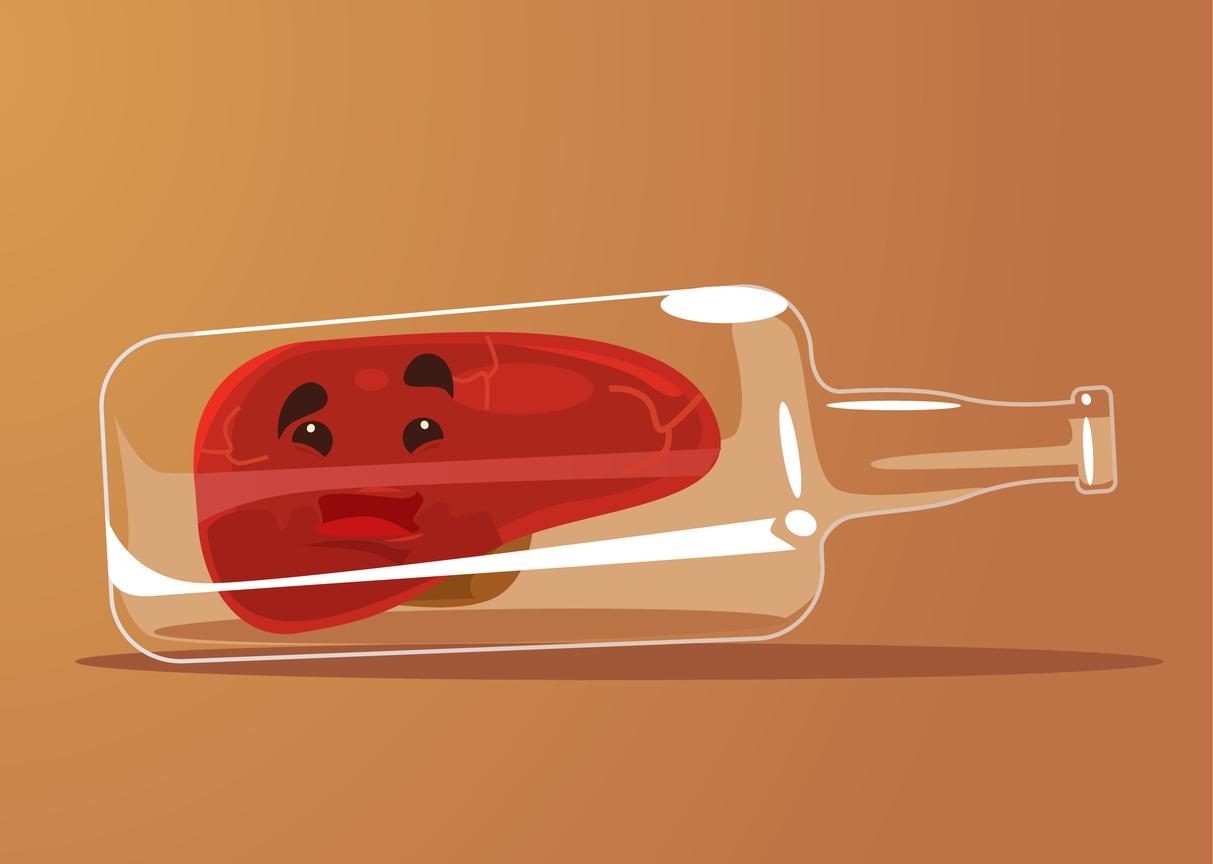Low to moderate alcohol consumption would reduce stress and, by domino effect, would have beneficial effects on the heart.

- In one study, Mass General researchers found that alcohol in low to moderate doses reduced stress signaling in the brain.
- This effect leads to a reduced risk of cardiovascular disease.
- However, given the increased risks of cancer and other diseases associated with alcohol consumption, researchers do not recommend alcohol as a method of preventing cardiovascular disease.
Cancer, car accident, addiction… alcohol can have serious health consequences. However, a study, conducted by researchers at Massachusetts General Hospital (Boston, USA), shows that alcoholic beverages can have benefits for the heart. The key to enjoying it would be moderation, according to their work.
The results are published in the journal Journal of the American College of Cardiology in June 2023.
Alcohol: small amounts reduce stress… which is good for the heart
This study involved more than 50,000 people enrolled in the Mass General Brigham Biobank, a database associated with Boston Hospital. The researchers noted the alcohol consumption of the participants as well as the occurrence of cardiovascular diseases. They also studied the records of 754 people who underwent brain scans to determine the effect of low to moderate alcohol consumption on resting stress-related neural network activity.
Scientists found that drinking alcohol in low to moderate amounts (1 drink per day for women and 1-2 drinks per day for men) was associated with reduced stress signaling in the amygdala, region of the brain associated with stress responses. According to them, this effect would explain the decrease in cardiovascular events observed in occasional drinkers.
“When the amygdala is overly alert and vigilant, sympathetic nervous system activity is heightened, which raises blood pressure and increases heart rate, and triggers the release of inflammatory cells”explains cardiologist Ahmed Tawako, lead author of the study, in a communicated. “If the stress is chronic, it results in hypertension, increased inflammation, and a substantial risk of obesity, diabetes, and cardiovascular disease.”
However, the expert pointed out that the positive effects of alcohol on the heart are only observed with very moderate consumption. Beyond the recommendations of health professionals, the drink may have adverse health effects such as an increased risk of liver disease or cancer.

Cardiovascular disease: finding other ways to reduce stress
While American studies have observed a beneficial effect of low to moderate alcohol consumption on the heart, they have also shown that any quantity increases the risk of cancer. Additionally, people who drink more than 14 drinks per week saw their risk of heart attack increase as their overall brain activity began to decline (which may be associated with poor cognitive health).
Thus, for the researchers, their work reveals, not that it would be good to drink small quantities of alcohol, but that it is necessary to fight against stress to reduce the risk of heart disease via methods that do not have the effects deleterious effects of alcohol such as sport, for example.














-1739366311.jpg)


